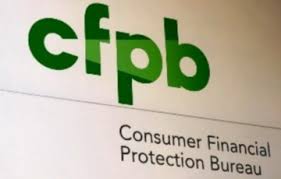On Tuesday, the leading U.S. consumer financial protection watchdog agency released long-awaited regulations that will encourage competition and push open banking by giving customers the ability to manage and share their data when they shop for services.
The new regulations also seek to regulate the interactions between the growing number of financial technology firms that provide consumer applications for a wider range of services and the occasionally conflicting interests of conventional banks that may be reluctant to provide access to their client’s accounts and information.
Rohit Chopra, director of the U.S. Consumer Financial Protection Bureau, said the upcoming change should help bring U.S. payment systems more in line with developments in other developed nations.
Laptops 1000He compared the transition to the regulations that currently permit mobile phone users to switch providers while keeping the same number.
He added that the rule includes consumer choices and robust privacy protections.
In prepared remarks made public before a speech scheduled for later Tuesday, he stated, “A company that ingests (a) consumer’s data can use the data to provide the product or service the consumer asked for, but not for unrelated purposes the consumer doesn’t want.”
The 2010 Wall Street reforms, which were implemented in the wake of the 2008 financial crisis, called for the new rules, which were first proposed a year ago and had been in the works for 14 years.
As the regulations go into force, customers will be allowed to move their data between banks without any fees or restrictions, the CFPB said.
Better terms will also be available to them, such as enabling lenders to issue loans using information owned by other financial institutions and enabling them to pay back their debts straight from their bank accounts instead of using a credit card.
Additionally, the CFPB reported that consumers will have the ability to immediately withdraw access to their data.
In response to industry concerns and public feedback, the CFPB made certain modifications to the initial proposal before the announcement.
For instance, banks with assets under $850 million were exempt from providing data.
Businesses will have more time than initially suggested to comply. It will take until 2026 for larger financial technology firms and until 2030 for smaller ones.

















